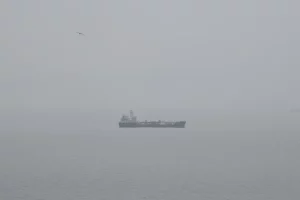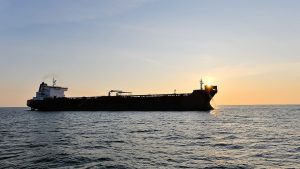What could be the new sanctions policy of the EU and the USA against Russia

Since the new sanctions packages of our allies will be announced in a few days, let’s conduct an experiment. When they are made public, we will compare them with the vision of the monitoring group of the “Institute of Black Sea Strategic Studies”.
So, our essay. It is almost the essence itself.
1. The main purpose of the sanctions should change – not to transmit demonstrative signals that the West can do something if the policy of the Russian Federation does not change, but instead:
1.1. radically reduce Russia’s ability to earn foreign currency from the export of raw materials;
1.2. to maximally deprive the Russian Federation of the opportunity to import machines, equipment, precision instruments, microcircuits and other things used for war.
It is necessary to say without any vague words that for this you need:
1.3. maximum economic isolation of the Russian Federation from the civilized world – that is, from the modern global high-tech economy. Even if this leads to some division of the world economy into two parts based on whether a specific country supports/does not support sanctions against the Russian Federation.
2. To prevent the Russian Federation from receiving the main foreign currency income from sea exports of oil and oil products as much as possible.
2.1. Immediately and categorically prohibit the tanker fleet of Western countries that have imposed sanctions from providing services for the transportation of Russian oil and petroleum products, regardless of whether there are documents for compliance with the “price ceiling” or not, because it is still a lie.
This will put approximately 30-35% of tankers, mostly Greek companies, out of business. Physically, this is not much – only 50-55 fleet units per month in the Baltic Sea, 32-33 in the Black Sea.
2.2. Forbidding tankers from the countries of the “sanctions coalition” to transport anything from Russian ports, because against the background of the war, it looks somehow strange when American tankers sometimes carry ridiculous amounts of mineral fertilizers from Russian ports to US ports – more noise and shame than business…
2.3. Include all (repeat – all!) tankers transporting Russian oil and oil products around the world on the US and EU sanctions lists.
2.4. Prohibit all ports of the countries of the “sanctions coalition” from receiving tankers from the areas of raid transshipments. There are 7 such districts:
• (1) in a bay near the Spanish port of Cadiz,
• (2,3) two – near the northern coast of Morocco in the Mediterranean Sea,
• (4) – south of the Laconian Gulf near the island of Kythira (Greece),
• (5) off the coast of Malta,
• (6) at the entrance to the Suez Strait,
• (7) near the Israeli port of Haifa.
2.5. Warn Turkey: if it does not stop re-exporting “repackaged” Russian oil and oil products to the EU, the same restrictions will be applied to Turkish ports in EU countries.
3. Prohibit the export to the Russian Federation of all (!) goods and products containing microcircuits, optical and electronic components and products of precision mechanics produced by the countries of the sanctioning coalition or licensed goods and products of the same groups.
4. To warn banks and logistics companies of all countries of the world that the service of export-import operations with the goods specified above will lead to a ban on the use of the US dollar and the euro.
5. Extend sanctions to all (!) banks and financial companies of the Russian Federation – currently only 62 of the 320 Russian banks are under sanctions.
6. To issue a categorical demand to all EU and US companies that have subsidiaries, branches, etc. in Russia, to completely freeze their activities within a few months (there are several thousand such companies).
7. Immediately synchronize all sanctions lists of the USA, the EU, Ukraine and other countries of the “sanctions coalition”.
That is, to unconditionally accept the results of investigations into sanctions-violating companies or those that facilitate the circumvention of sanctions in all countries.
(If all these countries trust each other’s intelligence, then trust in economic and financial intelligence should also be automatic).
8. Immediately prohibit, without exception, technical support of foreign technological equipment, equipment already working for Russian enterprises, in particular specialized software.
9. Transfer the functions of monitoring the implementation of sanctions from EU countries (as now) to the European Commission, create a European analogue of the American financial intelligence OFAC.
At the level of the Council of the EU and the European Parliament, it is fundamental to resolve the issue that individual EU countries cannot block the imposition of specific sanctions on the Russian Federation.





